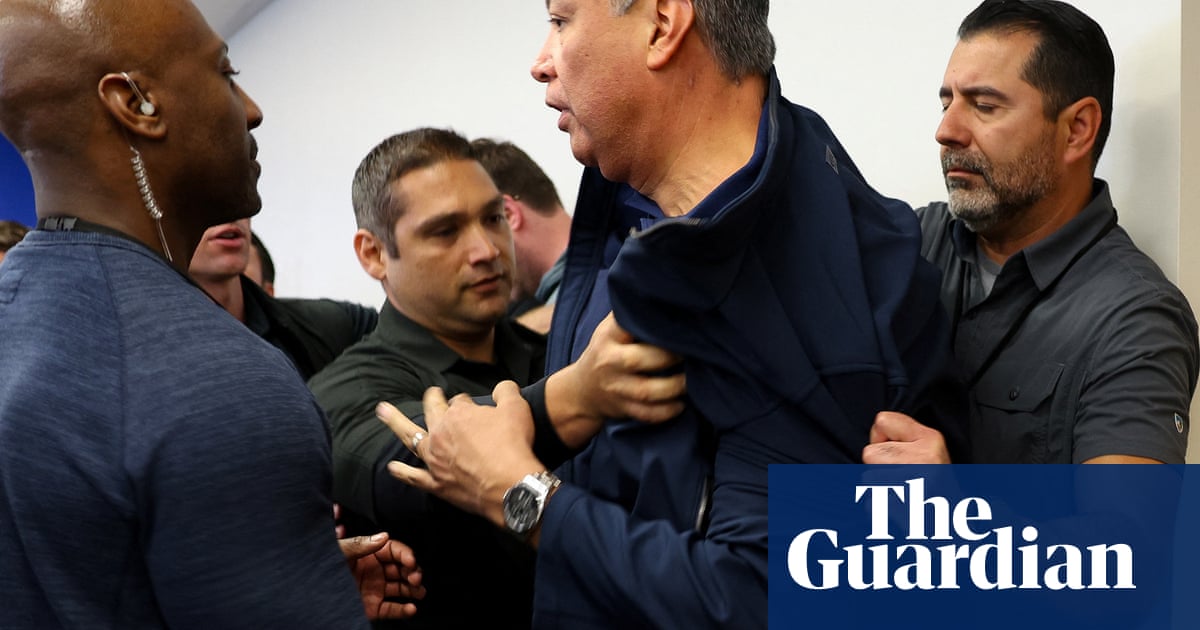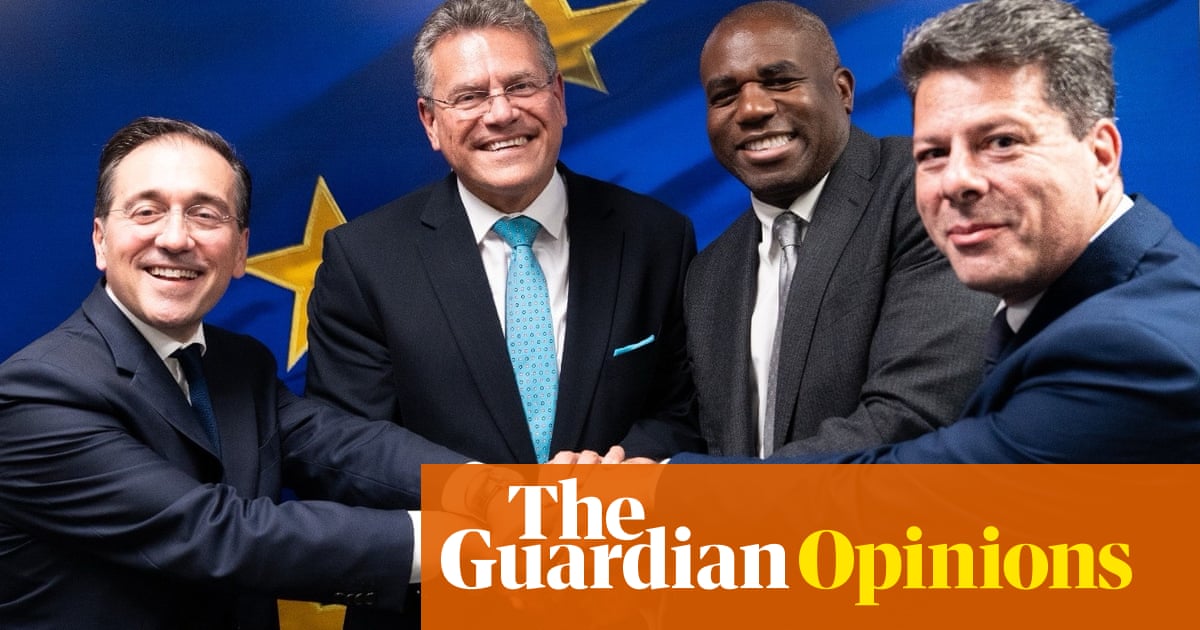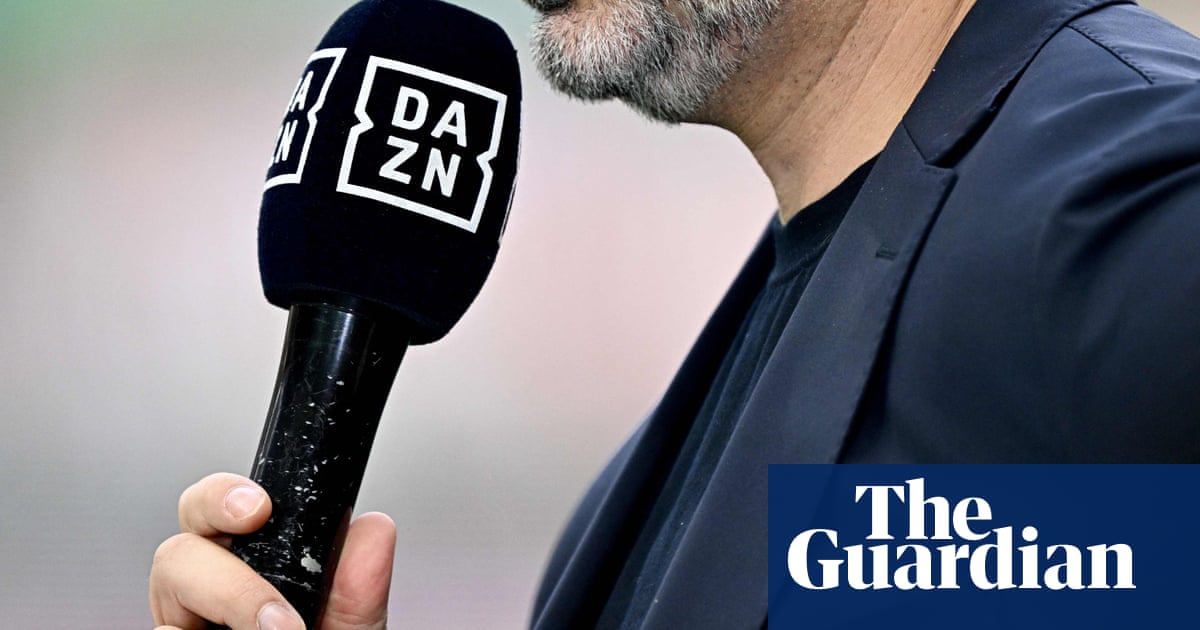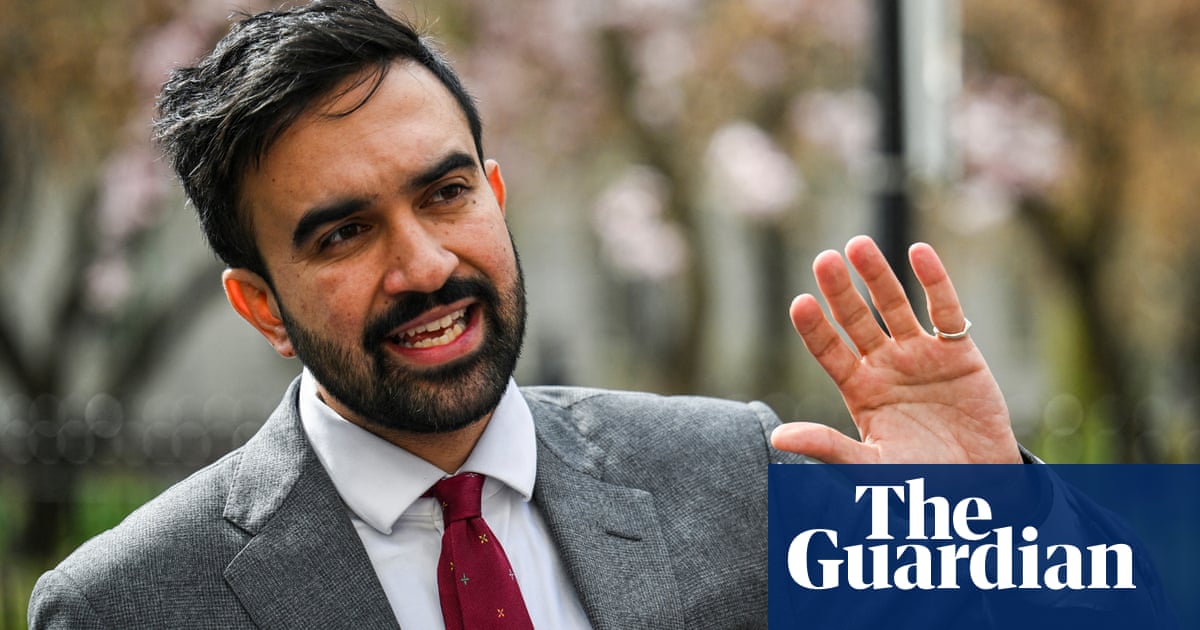Pete Buttigieg. Ruben Gallego. JD Vance. All are young politicians who sport facial hair, perhaps in the belief that it confers gravitas. One headline writer even suggested: “2028 Might Be The Year Of The Beard For Presidential Hopefuls.”
Cue Chris Murphy, a Democratic senator who recently joined the ranks of the bearded. The 51-year-old’s is flecked with white, perhaps implying a warrior weathered by battle. Murphy is one of the most outspoken voices in the Democratic opposition to Donald Trump.
In an interview with the Guardian, the senator has thoughts to share not only about the president but the future direction of his own party. He calls on Democrats to embrace populism, urges his colleagues to “take risks” and makes clear that he is not yet even thinking about 2028.
“We’ve got to look ourselves in the mirror and ask, how can we claim that we’re the party of poor people if poor people aren’t voting for us?” says Murphy, sitting in an office at a Washington thinktank about half a mile from the White House.
“There’s a lot of conservative poor people out there who think that our party is way too judgmental. We’ve got to become a bigger tent party when it comes to a lot of social and cultural and hot button issues and then we’ve got to become an aggressively populist party.”
Democrats have been soul searching since November, when they saw a further erosion of support among the working class. Trump won 56% of voters without a college degree, compared with 42% who chose Kamala Harris, a decline from 2020 when Trump and Joe Biden were about even.
Biden delivered an economic agenda that was bigger in scope and scale than many expected, with input from the progressive senator Bernie Sanders and impetus from the crisis of the Covid-19 pandemic. But Murphy, senator for Connecticut, argues that it failed to give people a sense of empowerment.
“We did some good things for poor people in the last Congress but they were largely seen as handouts: the child tax credit, student loan repayment, enhanced Obamacare subsidies – good policy, but it ended up feeling very unfulfilling to people to have the government write them a cheque to paper over the fact that work doesn’t pay.
“Our focus needs to be on making work pay, giving power to people. That’s what they want to feel: people want to feel powerful. They don’t want to feel like you have to subsidise them.
“That’s a higher minimum wage, stronger labour unions, fairer work rules, the deconcentration of economic power, the blowing up of the monopolies. Those are the kind of policies that are rooted in addressing the almost spiritual crisis of the country, the country that’s feeling like they don’t have agency over their entire lives.”
Earlier, during an event at the Center for American Progress thinktank, the last question from the audience concerned young men’s shift to the right and how Democrats can win them back.
Murphy replied that young people fundamentally believe the Democratic party is just as corrupt as the Republican party, meaning that government reform should be a priority. Democrats should also talk in “an unfiltered way”, the senator said. He also acknowledged a social revolution over the past half-century.
“Men in this country – but in the world generally – were able to easily find identity as breadwinners and protectors, and as women entered the workforce – an undeniably good, great thing – it has robbed from many men their easy access to meaning and purpose. Over the last 10 years, the right has been in a very deliberate conversation with men about that.
“Now, their answer is dangerous and irresponsible and misogynist. It’s just roll back – we’ll just go back to a world in which you were in charge. But the left’s message to men and young men has largely been ‘get over it’ – and that’s not satisfactory either. We have got to be more deliberate about talking to men about what their post-feminism identity can be, and the fact that there is a difference between male identity and female identity.”
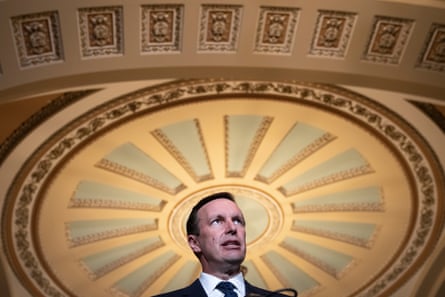
Facing the Trump 2.0 onslaught, Democrats are still trying to find their feet and are hungry for leadership. In April, Cory Booker delivered a record 25-hour speech on the Senate floor, denouncing Trump’s attack on democracy and the rule of law. Murphy was his wing man for much of it, returning a favour after Booker supported Murphy during his nearly 15-hour filibuster for gun control legislation in 2016.
Murphy reflects: “You can’t manufacture moments of leadership. They have to come organically but they’re really important. What Cory did galvanised people. What Chris Van Hollen did in his trip to El Salvador galvanised people.
“It is important for us to be willing to take risks right now. People want to see us engaged in risk taking to save the democracy. I’m more than willing to support any of my colleagues who are doing that and we should all be looking for those opportunities.”
After three terms in the House of Representatives, Murphy was elected to the Senate in 2012 to succeed the retiring Joe Lieberman. He has been a leading voice on gun legislation in the aftermath of the 2012 Sandy Hook shooting in Newtown, Connecticut, and was lead Democratic negotiator for a bipartisan gun control law that Biden signed in 2022.
Asked if he would consider a White House bid in 2028, Murphy says: “My voice is meaningful because I don’t have any other agenda beyond just trying to save democracy. Anybody thinking about an election in 2028 or 2026 would be foolish. We are not right now on a glide path to have a free and fair election in 2028, so all of us better put all of our energy into trying to save the democracy.”
Indeed, Trump has displayed authoritarian ambitions since taking office more than four months ago. He has used executive power to target Congress, law firms, media organisations, cultural institutions and leading universities.
Some of the checks and balances have proved resilient. The president has run into significant pushback from the courts, with numerous judges – including some appointed by Trump himself – blocking his agenda.
But Murphy sees no room for complacency. “The problem is the courts can’t keep up. I don’t think we ever contemplated this level of lawlessness. So yes, the courts are playing a role but every time a court makes a ruling, Donald Trump just acts in a different illegal way.
“They told him he couldn’t extort Harvard and he just found a different way to extort Harvard. The courts are largely doing the right thing but they are not a particularly effective prophylactic when there’s this amount of lawlessness happening.”
As Trump seeks to divide and rule, collective action is key, Murphy insists. “The law firms can beat Trump but they have to stick together. They can’t do what they did to Paul, Weiss, poaching attorneys when one of them gets targeted. Harvard can survive but only if the other universities stand with them. I’ve been very impressed by what Harvard has done but all the other universities have to stand firm.”
Murphy says Trump’s corruption comes in two parts: domestic and international. As a member of the Senate foreign relations committee, he has observed how Trump is operating in a way that no president has before in enriching himself and his family. His sweeping tariffs, for example, are a way to coerce foreign governments such as Vietnam’s to cut deals that will benefit the Trump property empire.
Qatar has gifted Trump a $400m luxury Boeing 747 jumbo jet for him to use as Air Force One then reportedly transfer to his presidential library in 2029 for his personal use after he leaves office. The Trump Organization recently signed a $5.5bn golf course and property deal with a firm established by Qatar’s sovereign wealth fund.
Murphy warns: “We are a kleptocracy. This is outright thievery every single day. It’s extraordinary how the president’s net worth has what, tripled, quadrupled since he became president? We’re not talking about first-term small-scale corruption, like buying a couple of rooms at the Trump hotel. We’re talking about billions of dollars worth of deals.”

National security is at risk, Murphy adds. “My understanding is that in exchange for the $2bn investment from the UAE, he’s willing to give them the advanced semiconductors. Those semiconductors could very likely fall into Chinese hands and that has catastrophic consequences for the US AI industry.
“Of course, the Saudis want nuclear technology and enrichment capabilities and that’s what they’re paying him for. These aren’t small issues that are being exchanged for investments in Trump and his businesses.”
In protest, Murphy will soon force a Senate vote on two joint resolutions of disapproval to block multibillion-dollar weapons sales to Qatar and the United Arab Emirates.
He explains: “I’m hopeful these resolutions will give us a chance to force Republicans to think hard about whether they want to be on the record normalising this kind of corruption. It’s extraordinary what they have given him a pass on. We have very few moments to force them on the record so I didn’t think we could pass up the opportunity.”
Trump’s focus on the Middle East and its financial opportunities has left Europe out in the cold. The sense of relative peace and security of the postwar transatlantic alliance is drawing to a close, as evidenced by Trump’s moral equivocation over Russia’s war in Ukraine. Murphy does not attempt to sugar-coat it.
“We are not a dependable partner right now and so I don’t think there’s any path for US leadership to magically reappear in the next three years. That matters most for Ukraine.
“I don’t mean to be unnecessarily pessimistic, but I think Donald Trump has made the decision to not just abandon Ukraine but humiliate Ukraine. To the extent Ukraine survives over the next three and a half years, that is largely going to be because our European allies do something heroic and important.”

 1 day ago
13
1 day ago
13
